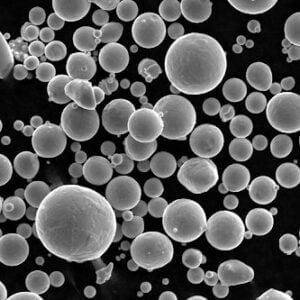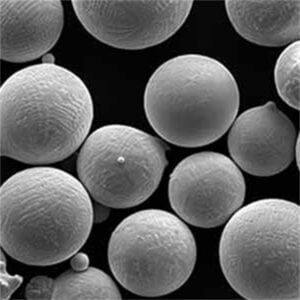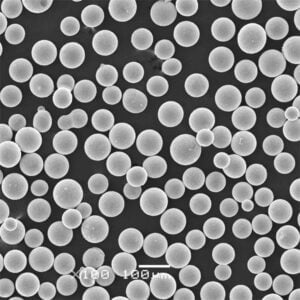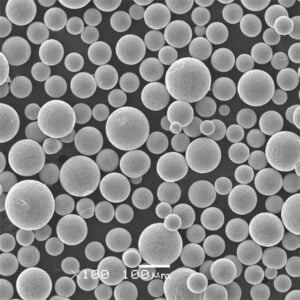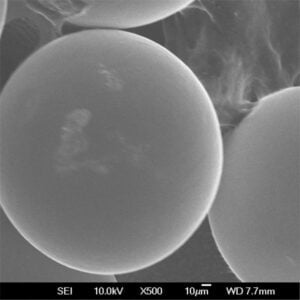Welcome to the fascinating world of TiO2 nano powder – a versatile and increasingly popular nanomaterial that is taking the industry by storm. Have you ever wondered what gives certain sunscreens their UV-blocking abilities or certain paints their brilliant white hue? Well, the answer lies in this incredible substance.
TiO2 nano powder, also known as titanium dioxide nanoparticles or nano-titania, is a highly engineered form of the naturally occurring mineral titanium dioxide. By reducing the particle size to the nanoscale (typically ranging from 1 to 100 nanometers), this material exhibits unique properties that set it apart from its bulk counterpart.
But what makes TiO2 nano powder so special? Well, let’s dive into the details. Firstly, its ultra-small size and high surface area-to-volume ratio give it enhanced reactivity, making it a game-changer in various applications, from photocatalysis to self-cleaning coatings. Secondly, its exceptional ability to absorb and scatter light in the UV and visible ranges makes it an indispensable ingredient in cosmetics, plastics, and pigments.
Now, brace yourself, because we’re about to embark on a journey through the fascinating world of TiO2 nano powder, exploring its composition, properties, applications, and everything in between. So, grab a cup of your favorite beverage, and let’s get started!
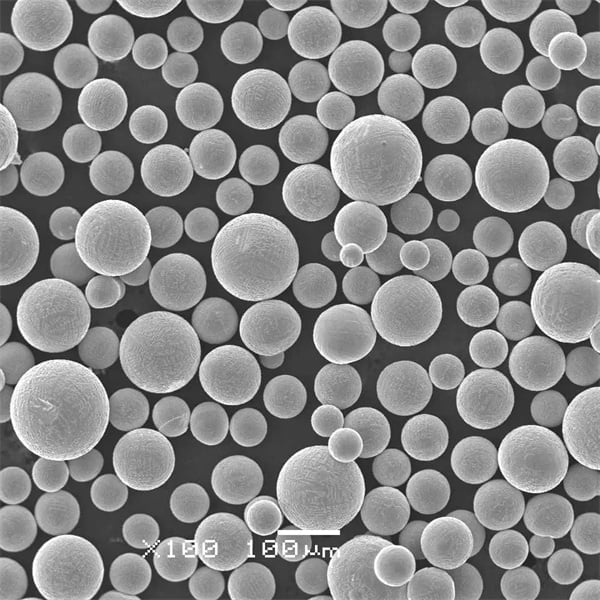
TiO2 Nano Powder Composition and Properties
Before we dive into the nitty-gritty details of TiO2 nano powder, let’s take a moment to appreciate the sheer complexity and versatility of this remarkable material. Are you ready to have your mind blown? Well, buckle up!
| Property | Description |
|---|---|
| Chemical Formula | TiO2 |
| Crystal Structures | Anatase, Rutile, Brookite |
| Molecular Weight | 79.88 g/mol |
| Color | White (Powder) |
| Melting Point | Anatase: 1825°C, Rutile: 1843°C, Brookite: 1825°C |
| Boiling Point | 2972°C |
| Density | Anatase: 3.9 g/cm³, Rutile: 4.26 g/cm³, Brookite: 4.17 g/cm³ |
| Refractive Index | Anatase: 2.49, Rutile: 2.73, Brookite: 2.58 |
| Particle Size | Typically 1-100 nm |
| Surface Area | High, depending on particle size and synthesis method |
| Band Gap Energy | Anatase: 3.2 eV, Rutile: 3.0 eV, Brookite: 3.1 eV |
As you can see, TiO2 nano powder exists in three distinct crystal structures: anatase, rutile, and brookite. Each of these structures imparts unique properties to the material, making it suitable for different applications. For instance, the anatase form is particularly useful in photocatalytic reactions, while the rutile form is preferred for pigmentary applications due to its higher refractive index.
But wait, there’s more! TiO2 nano powder is not just a one-trick pony. Its high surface area and band gap energy make it a versatile material with remarkable properties, such as photocatalytic activity, UV resistance, and opacity. It’s like having a tiny superhero that can tackle multiple challenges at once!
TiO2 Nano Powder Applications
Now that we’ve covered the basics of TiO2 nano powder’s composition and properties, it’s time to explore the vast array of applications where this incredible material shines. Get ready to be amazed by the sheer versatility of this tiny powerhouse!
| Application | Description |
|---|---|
| Cosmetics and Sunscreens | TiO2 nano powder acts as a UV filter, protecting the skin from harmful radiation while remaining transparent. |
| Paints and Coatings | Its high refractive index and opacity make it an excellent pigment for paints, coatings, and inks. |
| Self-cleaning Surfaces | The photocatalytic properties of TiO2 nano powder enable the degradation of organic contaminants, creating self-cleaning surfaces. |
| Environmental Remediation | TiO2 nano powder can be used in water and air purification systems, breaking down pollutants through photocatalytic reactions. |
| Energy Applications | Its ability to absorb and convert light energy makes it useful in dye-sensitized solar cells and hydrogen production through water splitting. |
| Biomedical Applications | Due to its biocompatibility and antimicrobial properties, TiO2 nano powder finds applications in wound dressings, dental implants, and drug delivery systems. |
And that’s just the tip of the iceberg! TiO2 nano powder has made its mark in a wide range of industries, from construction and automotive to food and textile. It’s like having a tiny superhero that can tackle multiple challenges at once!
But wait, there’s more! As technology continues to advance, researchers are exploring even more innovative applications for this remarkable material. From cancer treatment to energy storage, the possibilities seem endless. Who knows, maybe one day TiO2 nano powder will be the key ingredient in a superhero suit? (Okay, maybe that’s a bit of a stretch, but hey, a girl can dream!)
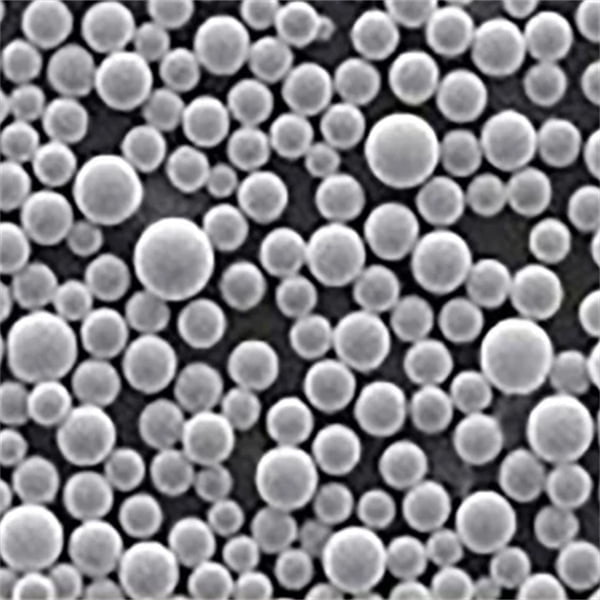
Industrial Applications of TiO2 Nano Powder
Now that we’ve whetted your appetite with a glimpse of TiO2 nano powder’s versatility, let’s dive deeper into some of its most prominent industrial applications. Buckle up, because this ride is about to get wild!
| Application | Description |
|---|---|
| Pigments and Coatings | TiO2 nano powder is widely used as a white pigment in paints, coatings, plastics, and inks due to its high refractive index, opacity, and brightness. It imparts a brilliant white color and enhances the durability and weatherability of the products. |
| Cosmetics and Sunscreens | Thanks to its ability to absorb and scatter UV radiation, TiO2 nano powder is a key ingredient in many sunscreens and cosmetic products. It provides broad-spectrum UV protection while remaining transparent on the skin. |
| Self-cleaning Surfaces | The photocatalytic properties of TiO2 nano powder enable the creation of self-cleaning surfaces. When exposed to UV light, the material breaks down organic contaminants, keeping surfaces clean and reducing maintenance costs. This technology is applied in building materials, automotive glass, and textiles. |
| Environmental Remediation | TiO2 nano powder’s photocatalytic activity can be harnessed for environmental remediation applications. It can decompose organic pollutants, bacteria, and viruses in water and air treatment systems, making it a valuable tool for environmental cleanup. |
| Sensors and Catalysts | The unique properties of TiO2 nano powder, such as its high surface area and conductivity, make it suitable for use in various sensors and catalytic applications. It can be incorporated into gas sensors, biosensors, and catalytic converters for improved performance. |
But wait, there’s more! TiO2 nano powder is constantly pushing the boundaries of innovation, with researchers exploring new and exciting applications every day. From energy storage and conversion to biomedical devices, this tiny powerhouse has the potential to revolutionize countless industries.
So, whether you’re an industry professional, a researcher, or just someone who’s fascinated by the wonders of nanotechnology, keep your eyes peeled for the latest developments in the world of TiO2 nano powder. Trust us, you won’t want to miss out on the action!
TiO2 Nano Powder Specifications and Suppliers
Alright, folks, it’s time to get down to the nitty-gritty details of TiO2 nano powder. Whether you’re a seasoned industry professional or a curious newcomer, this section is sure to pique your interest. Brace yourselves, because we’re about to dive into the world of specifications, suppliers, and pricing!
| Specification | Details |
|---|---|
| Particle Size | Typically ranging from 5 nm to 100 nm, with specific sizes available, such as 10 nm, 20 nm, 30 nm, and so on. |
| Surface Area | High surface area, ranging from 35 m²/g to 320 m²/g, depending on particle size and synthesis method. |
| Crystal Structure | Anatase, Rutile, or a combination of both forms. |
| Purity | Ranging from 99% to 99.9% purity, with higher purity grades available for specialized applications. |
| Morphology | Spherical, rod-like, or irregular shapes, depending on the synthesis method and desired properties. |
| Surface Modification | Available with various surface treatments, such as silica coating, aluminum oxide coating, or organic modifications, to enhance properties like dispersibility and compatibility. |
Phew, that’s a lot of technical jargon, isn’t it? But fear not, because we’re here to help you navigate these waters with ease. You see, the specifications of TiO2 nano powder can vary widely depending on the intended application and the desired properties. For instance, a smaller particle size might be preferred for applications that require a higher surface area, while a specific crystal structure could be favored for its unique optical or catalytic properties.
But wait, there’s more! Let’s talk about suppliers. With the increasing demand for TiO2 nano powder, numerous manufacturers and suppliers have entered the market, offering a wide range of products tailored to specific needs. Here are some of the major players in the game:
- Sigma-Aldrich
- Evonik Industries
- Cristal
- BASF
- Huntsman International
- DuPont
- Ishihara Sangyo Kaisha
- Kronos Worldwide
- Tronox
And let’s not forget about pricing. TiO2 nano powder can be a bit of an investment, with prices ranging from a few dollars per gram for research-grade materials to hundreds of dollars per kilogram for industrial-scale quantities. The cost can vary based on factors like purity, particle size, surface modifications, and the supplier’s reputation.
But fear not, savvy shoppers! With a little bit of research and negotiation skills, you can often find competitive prices and bulk discounts. After all, who doesn’t love a good deal, especially when it comes to cutting-edge nanomaterials?
Advantages and Limitations of TiO2 Nano Powder
In the world of nanotechnology, every material has its strengths and weaknesses, and TiO2 nano powder is no exception. While this incredible substance has revolutionized countless industries, it’s important to understand its advantages and limitations to make informed decisions. So, let’s dive right in and explore the pros and cons of this tiny powerhouse!
Advantages of TiO2 Nano Powder
| Advantage | Description |
|---|---|
| High Surface Area | The nanoscale size of TiO2 particles results in an exceptionally high surface area-to-volume ratio, enhancing reactivity and catalytic activity. |
| UV Protection | TiO2 nano powder effectively absorbs and scatters UV radiation, making it ideal for sunscreens, coatings, and UV-resistant materials. |
| Photocatalytic Activity | When exposed to UV light, TiO2 nano powder can initiate chemical reactions and break down organic pollutants, enabling self-cleaning surfaces and environmental remediation. |
| Optical Properties | The high refractive index and opacity of TiO2 nano powder make it an excellent white pigment for paints, coatings, and plastics. |
| Chemical Stability | TiO2 nano powder is highly stable and resistant to degradation, ensuring long-lasting performance in various applications. |
| Biocompatibility | In some forms, TiO2 nano powder exhibits biocompatibility, making it suitable for biomedical applications like implants and drug delivery systems. |
With these impressive advantages, it’s no wonder TiO2 nano powder has become a game-changer in so many industries. From keeping our buildings clean to protecting our skin from harmful UV rays, this tiny superhero truly packs a punch!
Limitations of TiO2 Nano Powder
| Limitation | Description |
|---|---|
| Potential Toxicity | While TiO2 nano powder is generally considered safe, there are concerns about its potential toxicity, particularly when inhaled or ingested. Long-term exposure studies are still ongoing. |
| Agglomeration | Nanoparticles have a tendency to agglomerate, which can affect their performance and properties. Effective dispersion techniques are crucial. |
| Cost | Depending on the purity, particle size, and surface modifications, TiO2 nano powder can be relatively expensive compared to its bulk counterpart. |
| Environmental Impact | The production and disposal of TiO2 nano powder can have environmental implications, and careful management is required to mitigate potential risks. |
| Photoreactivity | While photocatalytic activity is desirable in some applications, it can also lead to unintended consequences, such as degradation of materials or unwanted reactions. |
While these limitations are certainly worth considering, they shouldn’t overshadow the incredible potential of TiO2 nano powder. Like any cutting-edge technology, responsible development and implementation are key to maximizing its benefits while minimizing potential risks.
So, whether you’re a researcher, a manufacturer, or a consumer, it’s essential to stay informed and make educated decisions. After all, knowledge is power, and in the world of nanotechnology, a little bit of caution can go a long way.
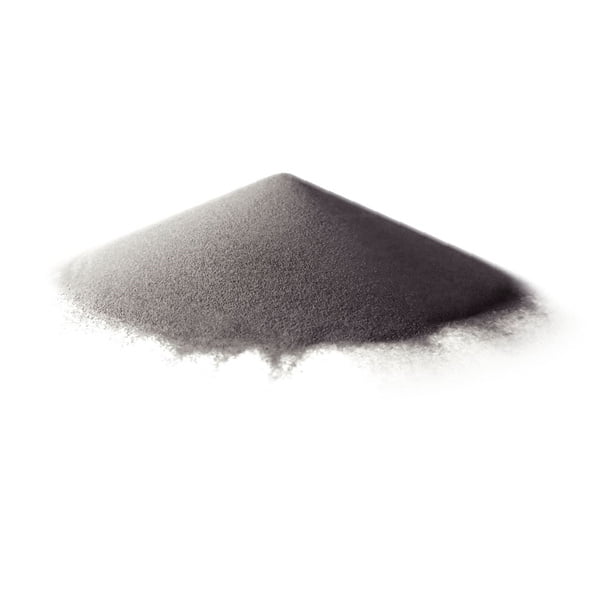
FAQ
We know, we know – the world of TiO2 nano powder can be a bit overwhelming, with all its technical jargon and mind-boggling properties. But fear not, dear readers, for we’ve compiled a list of frequently asked questions to help demystify this incredible material. So, grab a cup of your favorite beverage, and let’s dive right in!
| Question | Answer |
|---|---|
| What is the difference between TiO2 nano powder and regular TiO2? | The main difference lies in the particle size. TiO2 nano powder consists of particles with dimensions in the nanometer range (typically 1-100 nm), while regular TiO2 has a larger particle size. The smaller size of nano TiO2 results in a higher surface area-to-volume ratio, which leads to unique properties and enhanced reactivity. |
| Is TiO2 nano powder safe for use in consumer products? | TiO2 nano powder is generally considered safe for use in cosmetics, sunscreens, and certain food products when used as intended. However, there are ongoing studies investigating potential health risks associated with long-term exposure or inhalation of nanoparticles. Proper safety measures and regulations should be followed during production and handling. |
| What are the main crystal structures of TiO2 nano powder? | The three main crystal structures of TiO2 nano powder are anatase, rutile, and brookite. Anatase is commonly used for photocatalytic applications, while rutile is preferred for pigmentary applications due to its higher refractive index. Brookite is less common but can exhibit unique properties. |
| How is TiO2 nano powder produced? | TiO2 nano powder can be produced through various methods, including sol-gel synthesis, hydrothermal synthesis, vapor deposition, and flame synthesis. The choice of method depends on factors such as desired particle size, crystal structure, purity, and cost. |
| Can TiO2 nano powder be used in food products? | TiO2 nano powder is approved for use as a food additive and colorant in certain countries, subject to specific regulations and restrictions. However, there are ongoing debates and concerns regarding the potential health risks associated with nanoparticle ingestion, and further research is needed. |
| What are the main applications of TiO2 nano powder? | TiO2 nano powder has a wide range of applications, including cosmetics and sunscreens (UV protection), paints and coatings (pigments), self-cleaning surfaces (photocatalysis), environmental remediation, energy applications (solar cells, hydrogen production), and biomedical applications (implants, drug delivery). |
| How does the particle size of TiO2 nano powder affect its properties? | The particle size of TiO2 nano powder plays a crucial role in determining its properties. Smaller particles have a higher surface area-to-volume ratio, leading to enhanced reactivity and catalytic activity. However, smaller particles can also exhibit increased agglomeration tendencies and potential toxicity concerns. |




